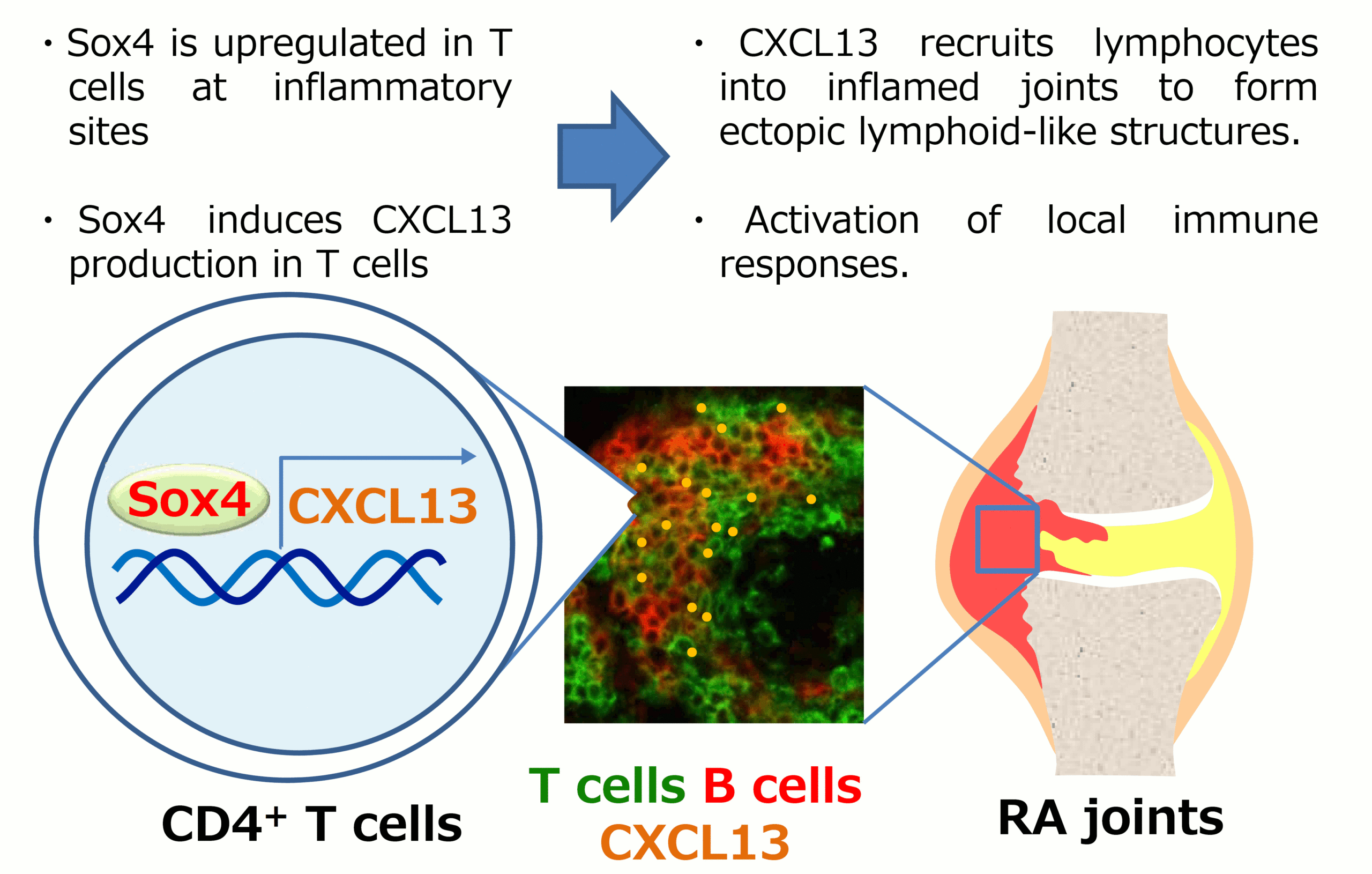| Sep 19, 2018 Human Sox4 facilitates the development of CXCL13-producing helper T cells in inflammatory environments |
Hiroyuki Yoshitomi 1,2,3, Shio Kobayashi 4, Aya Miyagawa-Hayashino 5, Akinori Okahata 3, Kohei Doi 3, Kohei Nishitani 6, Koichi Murata 6, Hiromu Ito 3, Tatsuaki Tsuruyama 7, Hironori Haga 5, Shuichi Matsuda 3, Junya Toguchida 1,2,3
(1 Department of Regeneration Science and Engineering, Institute for Frontier Life and Medical Sciences, Kyoto University, Kyoto, Japan 、2 Department of Cell Growth and Differentiation, Center for iPS Cell Research and Application, Kyoto University, Kyoto, Japan、3 Department of Orthopaedic Surgery, Kyoto University Graduate School of Medicine, Kyoto, Japan、4 Joslin Diabetes Center, Boston, MA, USA、 5 Department of Diagnostic Pathology, Kyoto University Hospital, Kyoto, Japan、 6 Department of Advanced Medicine for Rheumatic Diseases, Kyoto University Graduate School of Medicine, Kyoto, Japan 、7 Department of Drug Discovery Medicine, Kyoto University Graduate School of Medicine, Kyoto, Japan)
“Human Sox4 facilitates the development of CXCL13-producing helper T cells in inflammatory environments”
Nature Communications (2018), DOI: 10.1038/s41467-018-06187-0
Abstract
In human inflammatory diseases such as rheumatoid arthritis (RA), PD-1hiCXCR5–CD4+ T (Tph) cells are involved in the formation of ectopic lymphoid-like structures (ELSs) by the secretion of chemoattractant CXCL13, but how the transcription of CXCL13 is regulated in CD4+ T cells has been still unclear. In this research, transcriptome analysis of in vitro-induced CXCL13-producing Tph cells showed that Sox4 is a key transcription factor for CXCL13 production in human CD4+ T cells. Furthermore, Sox4 was upregulated in CD4+ T cells of inflamed RA joints, and correlates with ELS formation in RA synovium. Thus, Sox4 is involved in ELS formation in inflamed sites and resulting activation of local immune responses via CXCL13 production by CD4+ T cells.
Fig. 1 Overview of the findings

